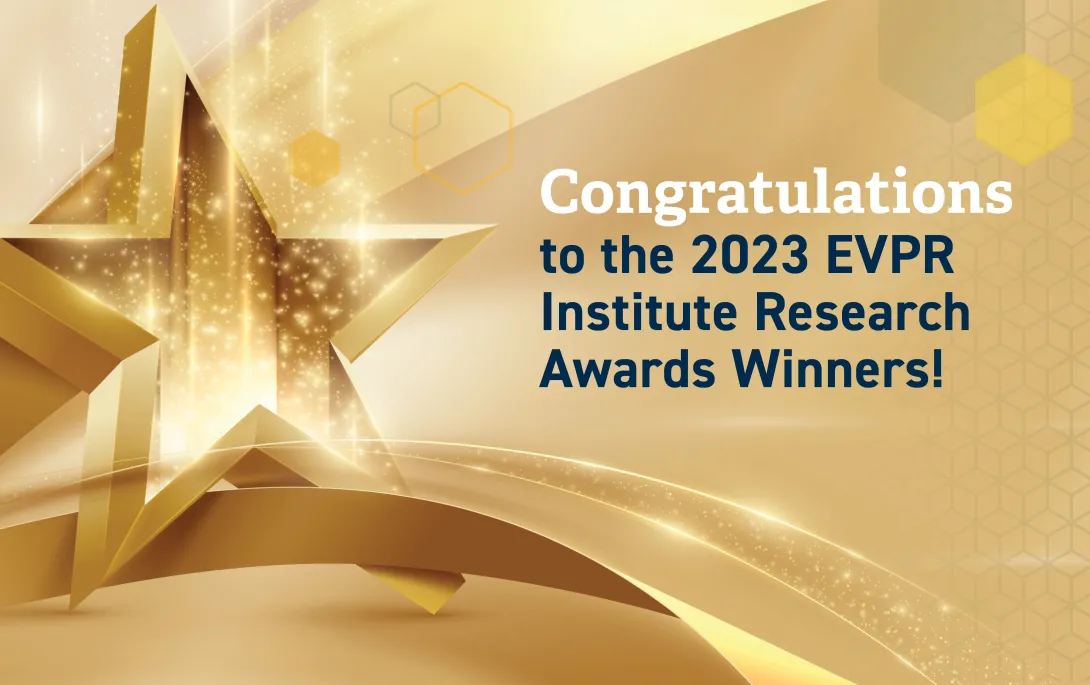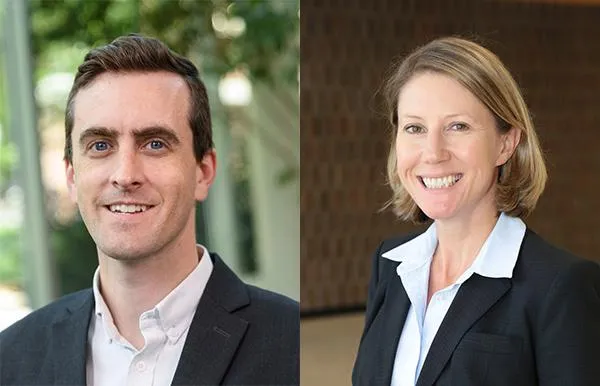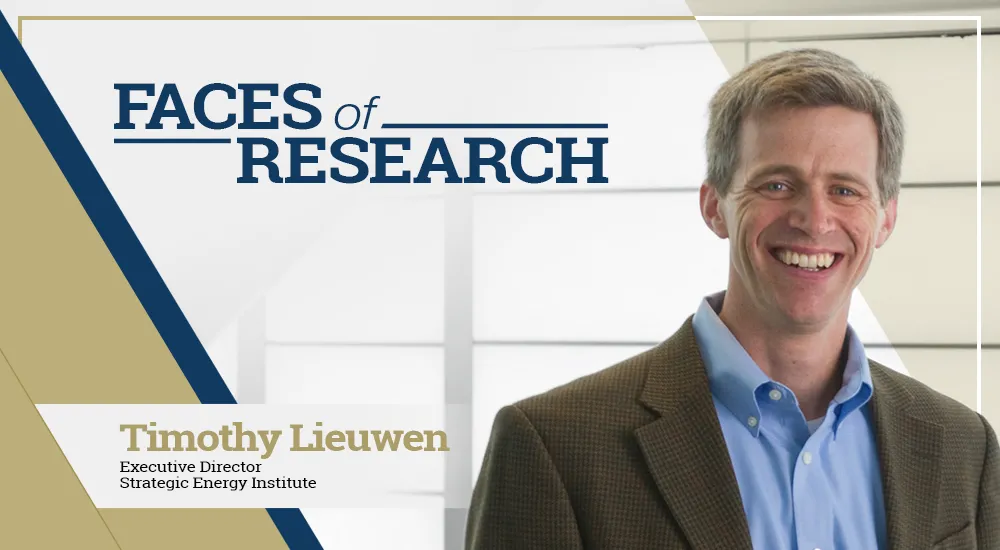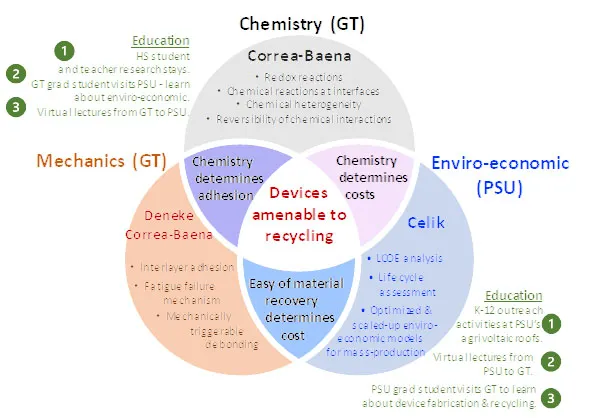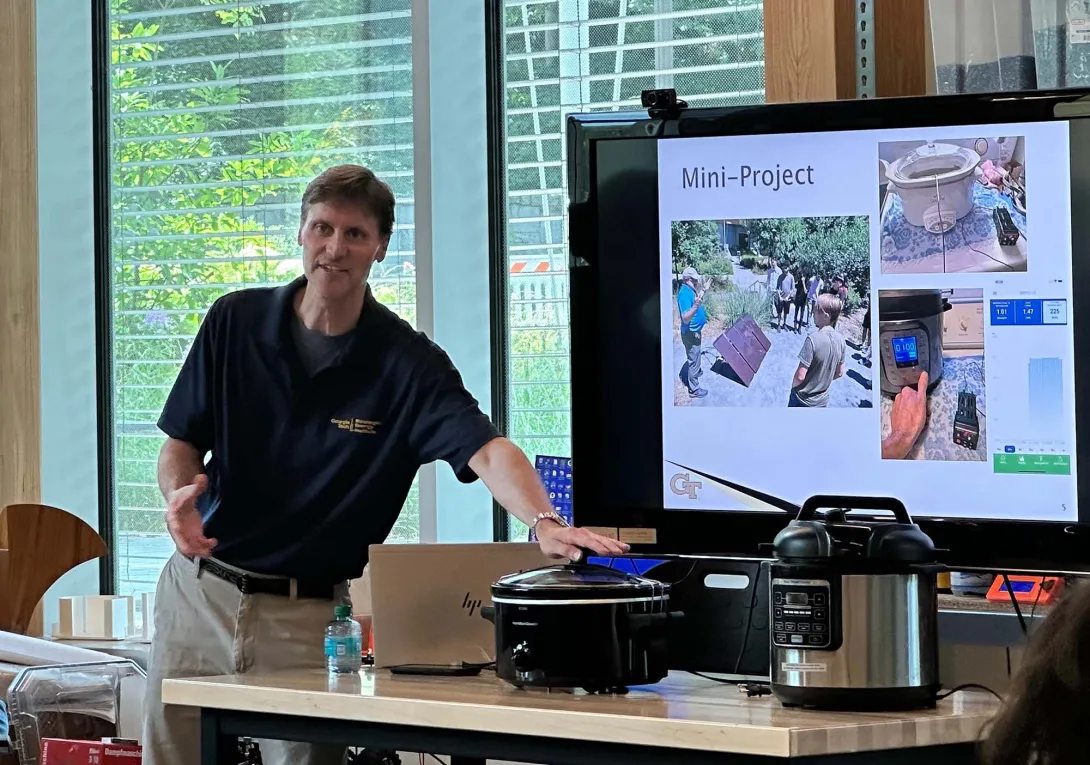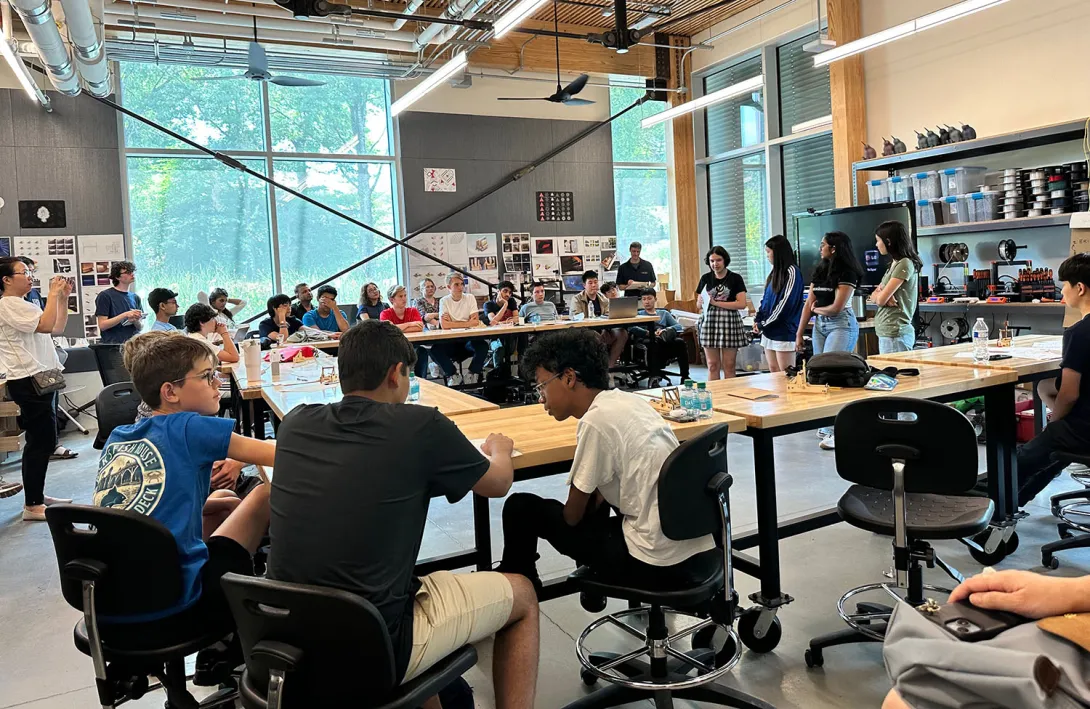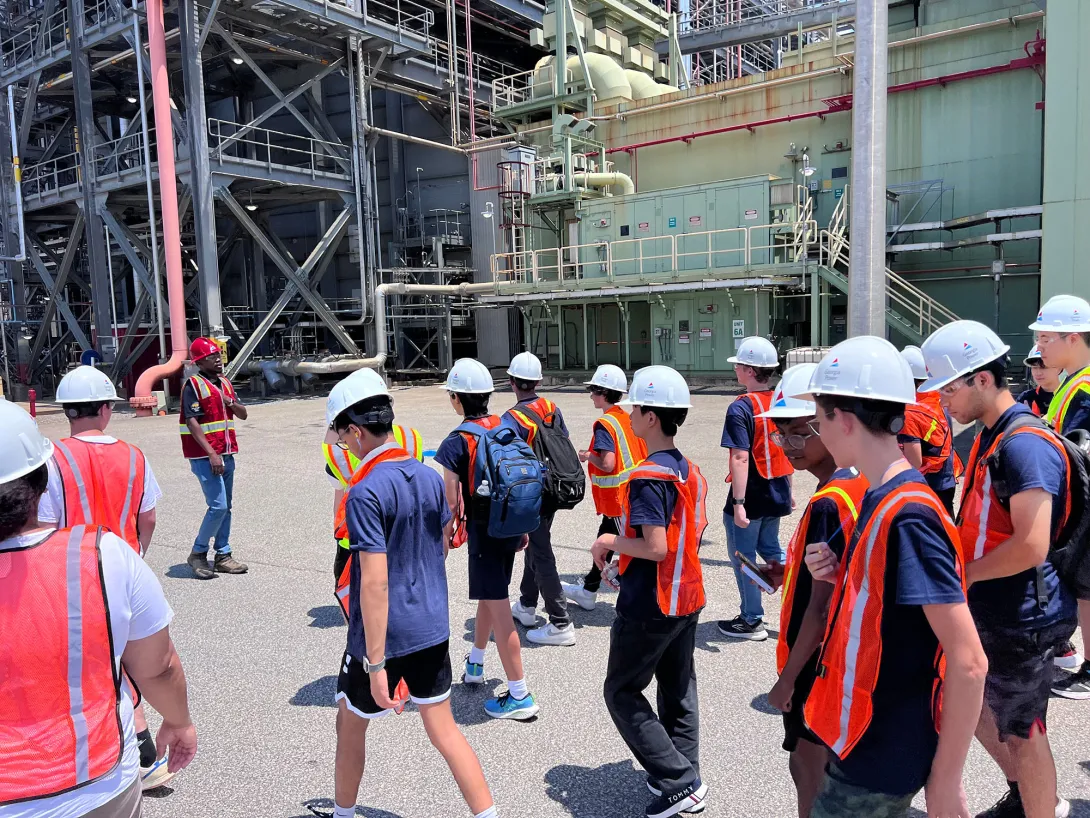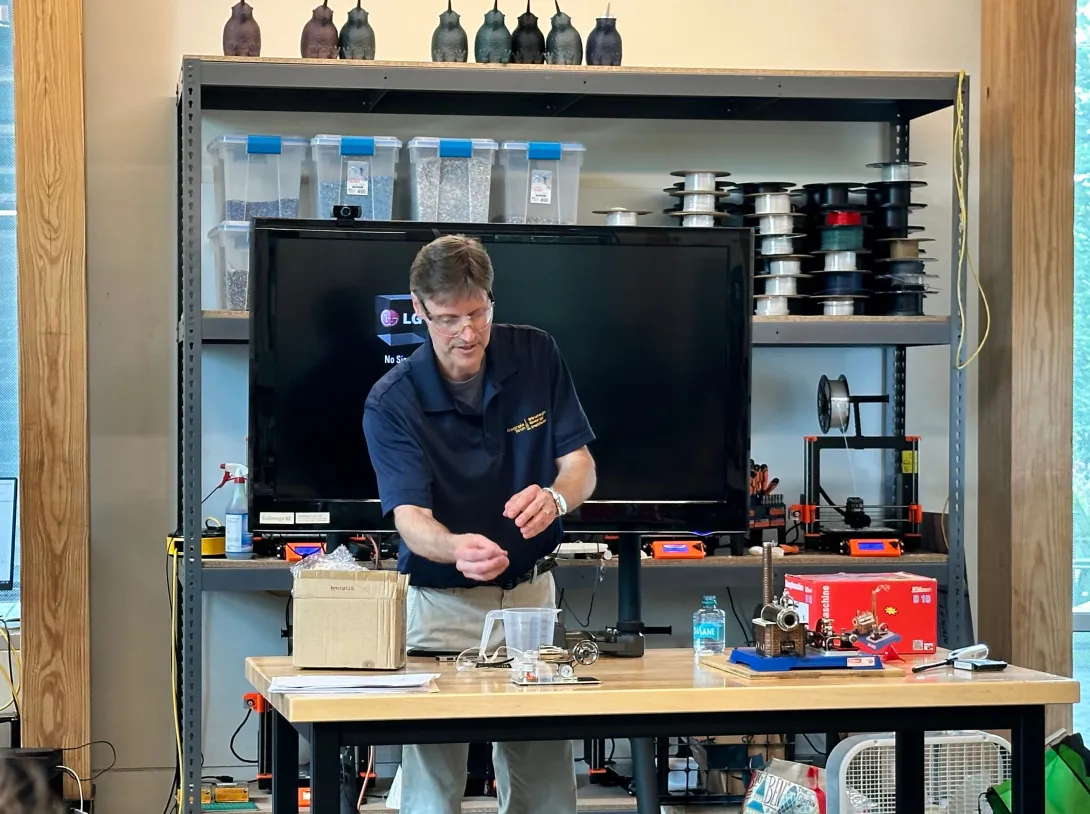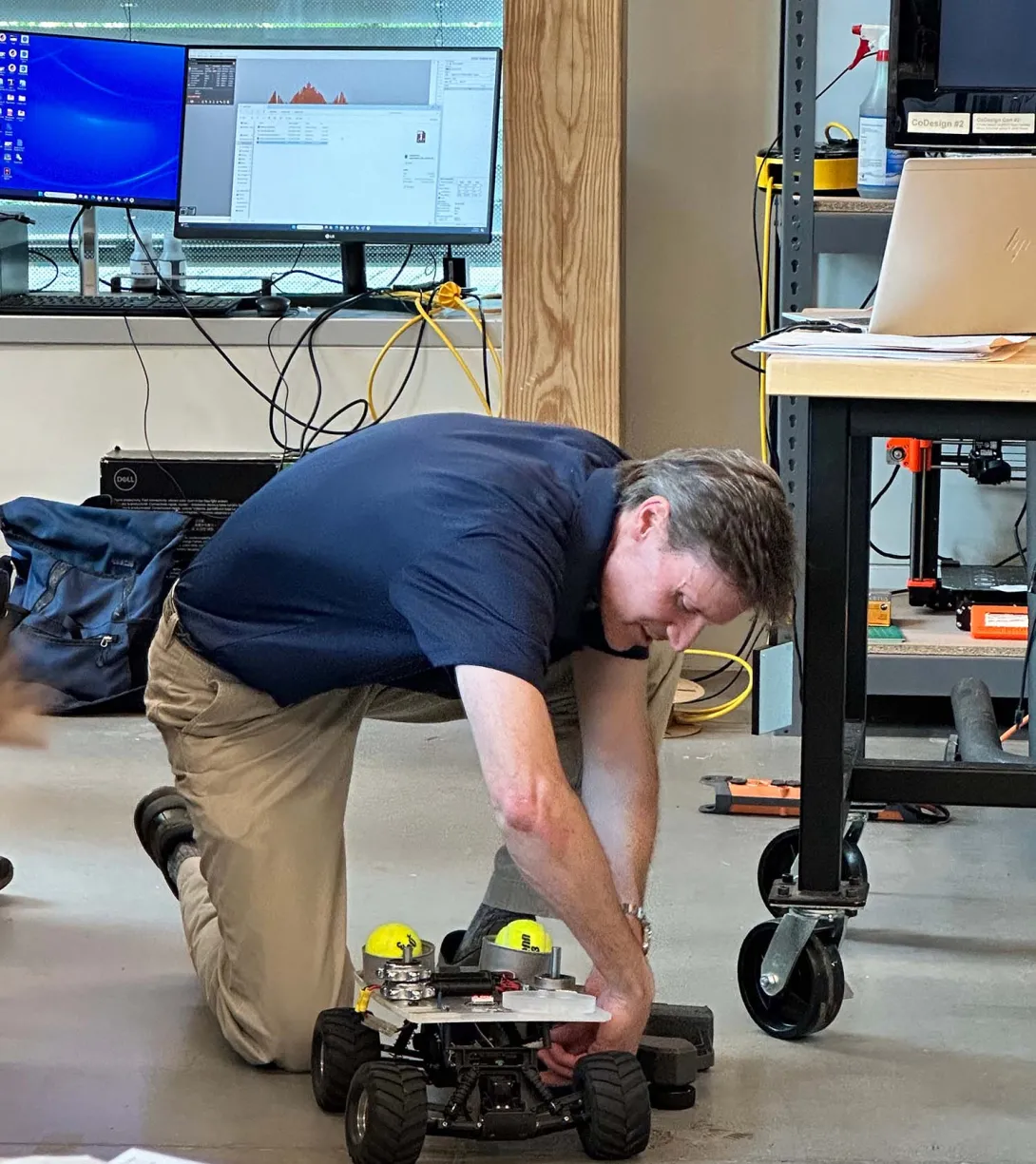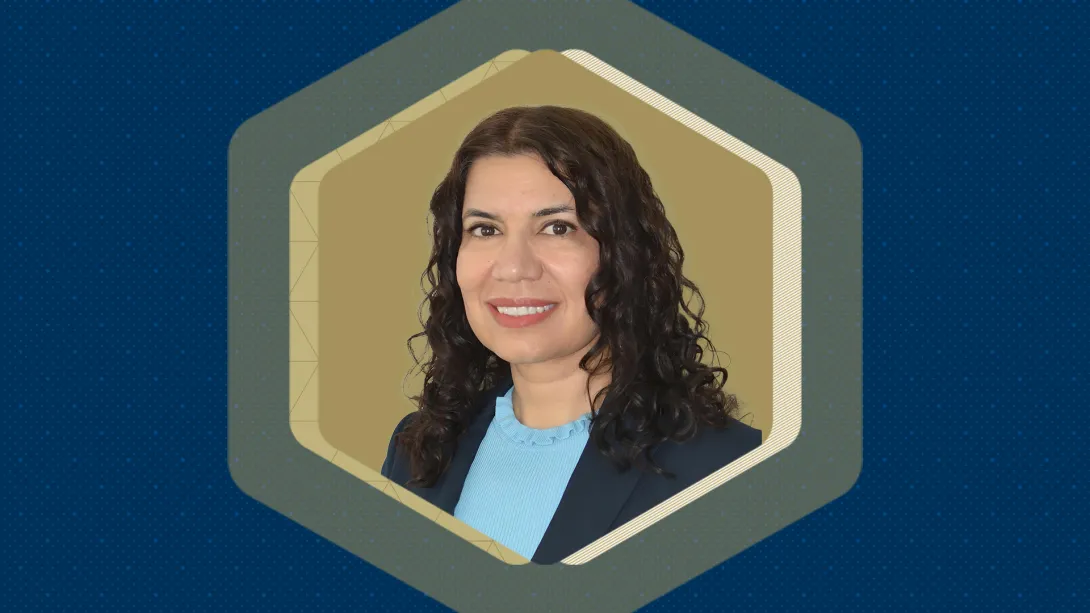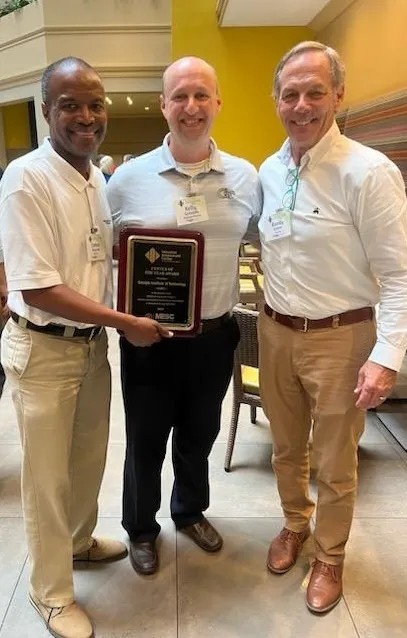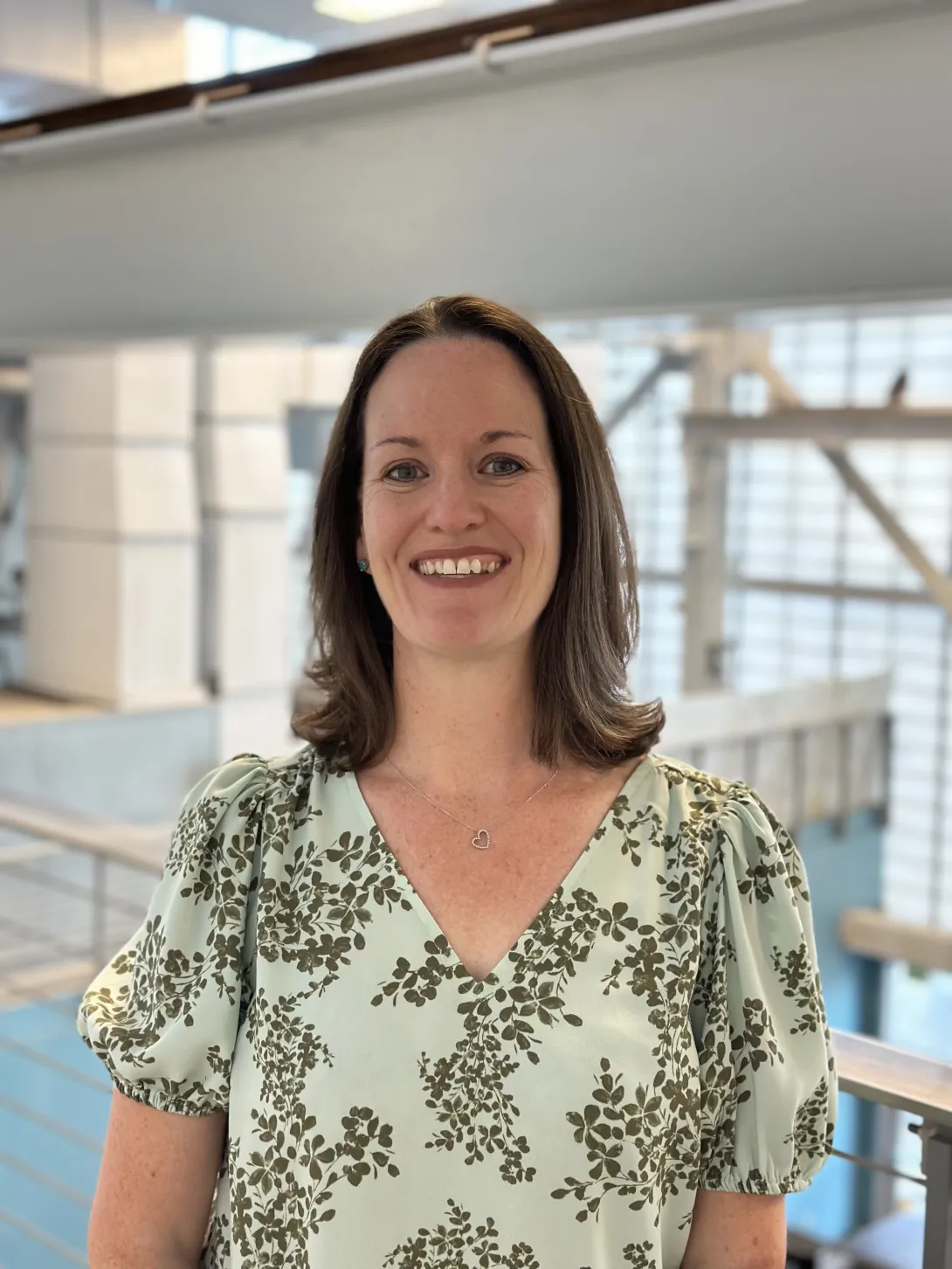Sep. 06, 2024
At Georgia Tech, the research enterprise covers activities from basic research to commercialization and societal use. Each year, the Executive Vice President for Research (EVPR) presents awards to recognize the achievements of faculty and staff as partners, mentors, and outstanding researchers across the many facets of the enterprise.
“Congratulations to all the exceptional nominees and to the individuals who were selected to receive this year's Institute Research Awards,” said Chaouki Abdallah, executive vice president for Research at Georgia Tech. “These outstanding researchers were nominated by their peers for their diligent research efforts, and we are proud to acknowledge them for their commitment to advance science and technology and to improve the human condition.”
Awardees were selected in nine areas, from achievements in innovation to engagement and outreach. Two of the awards were given to groups of researchers who are making an impact collectively. This year, more than 150 researchers were nominated for these prestigious awards.
- Outstanding Achievement in Advancing Diversity, Equity, and Inclusion:Iris Tien, CEE, SEI
- Outstanding Achievement in Early Career Research:Marta Hatzell, ME, IMat, SEI
- Outstanding Achievement in Research Enterprise Enhancement:Robert Knotts, Federal Relations
- Outstanding Achievement in Research Innovation:Younan Xia, SoCB, IEN, Imat, IBB
- Outstanding Doctoral Thesis Advisor:John Reynolds, SoCB, IMat, RBI
- Outstanding Faculty Research Author:Wilbur Lam, BME, IEN, IBB
- Outstanding Achievement in Research Engagement and Outreach:Pascal Van Hentenryck, ISyE, IDEaS, SEI
- Outstanding Achievement in Research Program Development: The Spaceflight Project Group at GT: Glen Lightsey, AE, IRIM; Jud Ready, GTRI, IEN, IMat, SEI; Christopher Valenta, GTRI; Christopher Carr, AE; Brian Gunter, AE, BBISS, IRIM; Sterling Peet, AE; Ian Harrison, GTRI
- Outstanding Achievement in Research Program Impact:Partnership for Inclusive Innovation: Debra Lam, IDEaS, IPaT, SEI; Clarence Anthony Jr., Kayla Burns, Cody Cocchi, Jamal Lewis, Polly Sattler, all from EI2
Awardees will be recognized at the Faculty and Staff Honors Luncheon on Friday, April 21.
Sep. 06, 2024
Georgia Tech’s School of Chemical and Biomolecular Engineering has been renewed by the U.S. Department of Energy (DOE) for a third round of funding ($13.2 million over four years) for its Energy Frontier Research Center (EFRC) to study materials used in clean energy technologies.
News Contact
Brad Dixon, braddixon@gatech.edu
Sep. 06, 2024
Meet Tim Lieuwen, executive director of the Strategic Energy Institute (SEI).
SEI is one of Georgia Tech's 10 interdisciplinary research institutes within the Georgia Tech Research enterprise.
What is your field of expertise and why did you choose it?
I work in fluid mechanics, combustion, and acoustics. These disciplines lie right at the intersection of what makes energy systems work. I absolutely love doing research and my research areas – making fire, saving the planet, pointing lasers and high-speed cameras at complex facilities, what more could you ask for?
What makes the way in which SEI enables campus energy research unique?
Georgia Tech has over 300 faculty and 1000 researchers working on energy. The key role of SEI is to promote this work, build communities across campus, and assist in developing greater resources through larger federal and corporate opportunities. One of the things I like most about this job, is that my success is measured by that of the Georgia Tech team as a whole- and it is an extremely high performing team!
What couldn’t have happened without SEI?
Georgia Tech’s energy innovations have had an enormous footprint – solar cells, artificial intelligence for optimizing complex energy systems and energy storage, just to name a few. SEI works hard to make faculty aware of external opportunities with the government and companies, and to develop and frame issues that we think are important. I personally spend a lot of time working with organizations across campus developing corporate connections, national lab connections and federal connections to help build the success of SEI.
What impact is Georgia Tech energy research having on the world?
Georgia Tech energy research has had a huge impact on virtually every part of the energy ecosystem – both in terms of generation of power, transmitting/moving/storing energy to users, and the consumption of energy. In addition to technologies and basic science, our systems level perspectives that incorporate policy, economics, and human behavior have been critical in framing national thinking about deployment of renewables. Our faculty have developed IP, started up nationally leading companies, and have created crucial partnerships in developing and deploying these innovations.
What do you like to do in your spare time when you are not working on your research or teaching?
I enjoy the outdoors and particularly enjoy trail running, rock climbing and gardening. I also love woodworking and spending time with my wife and four daughters.
Sep. 06, 2024
New research shows that an effort to improve wintertime air quality in Fairbanks, Alaska — particularly in frigid conditions around 40 below zero Fahrenheit — may not be as effective as intended.
Led by a team of University of Alaska Fairbanks and Georgia Tech researchers that includes School of Earth and Atmospheric Sciences Professor Rodney Weber, the researchers' latest findings are published in Science Advances.
In the study, the team leveraged state-of-the-art thermodynamic tools used in global air quality models, with an aim to better understand how reducing the amount of primary sulfate in the atmosphere might affect sub-zero air quality conditions.
The project stems from the 2022 Alaskan Layered Pollution and Chemical Analysis project, or ALPACA, an international project funded by the National Science Foundation, the National Oceanic and Atmospheric Administration and European sources. It is part of an international air quality effort called Pollution in the Arctic: Climate Environment and Societies.
Read the full story in the University of Alaska Fairbanks newsroom.
News Contact
Jess Hunt-Ralston
Director of Communications
College of Sciences
Georgia Institute of Technology
Rod Boyce
University of Alaska Fairbanks
Aug. 28, 2024
We have a problem with our current solar cells. They were built with very little thought towards end-of-life. Current solar panels tend to last twenty to thirty years. As those solar panels start to age, we are left with the challenge to think about how to recycle them. When the National Science Foundation (NSF) put out an interdisciplinary challenge for clean energy, Dr. Correa-Baena, Dr. Naomi Deneke, and Dr. Ilke Celik partnered to write a proposal to tackle recycling of perovskite solar cells.
Read Full Story on the MSE website.
News Contact
Caitlin Anderson
Aug. 20, 2024
The Energy, Policy, and Innovation Center (EPICenter) hosted the 2024 cohort of Energy Unplugged, a Science, Technology, Engineering, Art, and Math (STEAM) summer program for high school students. The weeklong camp was held at Georgia Tech’s Atlanta and Savannah campuses this summer and has earned a reputation as one of the most sought-after high-school-level summer camps hosted by Georgia Tech.
Rich Simmons, director of Research and Studies at the Strategic Energy Institute, has been the driving force behind the camp since its inception in 2019. Simmons, a faculty instructor in the George W. Woodruff School of Mechanical Engineering at Georgia Tech, brings his award-winning teaching expertise to high school students, ensuring that each session of Energy Unplugged is both educational and engaging. The program covered a range of timely topics, from basic energy principles such as conservation laws, electric circuits, and battery storage to more complex subjects like environmental impacts, data analytics, and decision-making. In addition, students were immersed in hands-on activities, interactive demonstrations, and power plant site visits.
During the first two days, students formed teams to construct catapults and mousetrap cars, discussed the underlying physics involving energy conversion, and then launched projectiles and vehicles to test their predictions. In one of the camp’s most popular activities, students raced remote-controlled cars around an obstacle course to learn about the importance of balancing multiple objectives, such as energy use, elapsed time, safety, and cargo capacity. The week culminated in a small-group mini-project, where campers applied the skills they had acquired to solve a real-world challenge — to optimize a cooking process using solar energy. Given specific parameters on energy generation, storage, and meal demand, the students determined the best approach to convert solar energy for cooking and storage to meet a daily lunch and dinner schedule for a food truck business. The program concluded with the campers presenting their preferred designs to an audience of parents, faculty, and staff, adding public speaking and technical presentation skills to their summer experiences.
Every year, students highlight the energy field trips to power plants, data centers, robotics labs, and makerspaces as some of their favorite aspects of the camp. A student poll during the final presentations used words like fun, informative, interesting, magical, epic, exciting, educational, and fantastical to describe the camping experience. The camp introduced the students to STEM-related careers and the many undergraduate programs that could provide a pathway for them.
Energy Unplugged provides a portal for Georgia Tech graduate student interns such as Jake Churchill and staff members such as Jordann Shields to engage students with energy concepts, activities, career paths, and information about attending Georgia Tech.
Energy Unplugged is administered by Georgia Tech Summer P.E.A.K.S. (Program for Enrichment and Accelerated Knowledge in STEAM) at CEISMC (the Center for Education Integrating Science, Mathematics, and Computing), the primary connection point between Tech faculty and students and the K-12 STEAM education community. Annually, CEISMC programs are accessible to more than 39,000 students; 1,700 teachers; and 200 schools in over 75 school districts throughout Georgia.
As part of the Strategic Energy Institute, EPICenter taps into regional and national expertise within academia, businesses, non-governmental organizations, and research facilities to provide an unbiased and interdisciplinary framework for driving innovation in energy policy and technology in the Southeast.
News Contact
Priya Devarajan || SEI Communications Program Manager
Aug. 14, 2024
Georgia Tech School of Electrical and Computer Engineering Professor Maryam Saeedifard received two prestigious awards from the Institute of Electrical and Electronics Engineers (IEEE) this summer.
The first award was the IEEE Modeling and Control Technical Achievement Award for her contributions to modeling and control of multilevel converters for medium- and high-power energy conversion systems.
The award honors innovators and researchers who have made outstanding and sustained technical contributions to the advancement of power electronics in modeling and control. She will be presented with the award at the IEEE Energy Conversion Congress and Exposition this October in Phoenix.
Saeedifard also won the IEEE Bimal Bose Award for Industrial Electronics Applications in Energy Systems.
She received the honor for her work on renewable energy integration and transmission, as well as protection and stability analysis of multi-terminal HVDC grids.
The award recognizes a young researcher who has made significant contributions to the advancement of energy systems through industrial electronics applications. The award will be presented to her at the IEEE Industrial Electronics Conference this November in Chicago, where she is also one of the plenary speakers.
Saeedifard joined ECE as an assistant professor in spring 2014, specializing in power electronics and modular energy conversion systems for both terrestrial and mobile power systems.
Her research has garnered numerous national and international awards, including several prize paper awards for her impactful IEEE Transactions publications, as well as being recognized as an IEEE Fellow by the Power Electronics Society in 2022. She also serves as co-editor-in-chief of IEEE Transactions on Power Electronics.
She was recently appointed a Ken Byers Professor in ECE and serves as the School’s inaugural director of Faculty Evaluation and Recognition.
Since the start of her academic career in 2010, she has successfully advised and graduated 13 Ph.D. students and five M.S. students.
News Contact
Zachary Winiecki
Aug. 09, 2024
The federally funded IAC program provides small to mid-sized industrial facilities in the region with free assessments for energy, productivity, and waste, while also supporting workforce development, recruitment, and training.
“This IAC is a great example of the ways in which Georgia Tech is serving all of Georgia and the Southeast,” said Tim Lieuwen, executive director of Georgia Tech’s Strategic Energy Institute (SEI) and Regents’ Professor and holder of the David S. Lewis, Jr. Chair in the Daniel Guggenheim School of Aerospace Engineering.
“We support numerous small and medium-sized enterprises in rural, suburban, and urban areas, bringing the technical expertise of Georgia Tech to bear in solving real-world problems faced by our small businesses.”
Georgia Tech’s IAC, which serves Georgia, South Carolina, and North Florida, is administered jointly by the George W. Woodruff School of Mechanical Engineering and the Georgia Manufacturing Extension Partnership (GaMEP), part of the Enterprise Innovation Institute (EI2). The organization has performed thousands of assessments since its inception in the 1980s – usually at the rate of 15 to 20 per year – and typically identifies upwards of 10% in energy savings for clients.
The assessment team, overseen by IAC associate director Kelly Grissom, comprises faculty and student engineers from Georgia Tech and the Florida A&M University/Florida State University College of Engineering.
In addition, Georgia Tech leads the Southeastern IACs Center of Excellence, which partners the institution with fellow University System of Georgia (USG) entity Kennesaw State University, local HBCU Clark Atlanta University, and neighboring state capital HBCU Florida A&M University.
Although mechanical engineering has historically been the chief area of concentration for IAC’s interns, the program currently accepts students across a range of disciplines. “Increased diversity from that standpoint enriches the potential of the recommendations we can make,” said Grissom.
Students are integral to the program, as is Grissom’s role in facilitating their experiences with client engagement and technical recommendations.
“Kelly is the reason our program has been recognized,” said Randy Green, energy and sustainability services group manager at GaMEP. “He works tirelessly to ensure that assessments are accomplished with success for our manufacturers and students.”
“We also recognize our partnership with the Woodruff School of Mechanical Engineering and with IAC program lead Comas Haynes, Ph.D., who works diligently to keep us on track and connected with our sponsors at the U.S. Department of Energy,” Green added.
The DoE accolade represents “a ‘one Georgia Tech’ win,” symbolic of the synergistic relationships forged across the Institute, said Haynes, who also serves as the Hydrogen Initiative Lead at Georgia Tech’s Strategic Energy Institute (SEI) and Energy branch head in the Intelligent Sustainable Technologies Division at the Georgia Tech Research Institute. Haynes specifically cited Green’s “technical prowess and managerial oversight” as another key to the IAC program’s success.
Said Devesh Ranjan, Eugene C. Gwaltney, Jr. School Chair and professor in the George W. Woodruff School of Mechanical Engineering, “It is truly an honor for Georgia Tech to be named the Department of Energy Industrial (Training and) Assessment Center of the Year. Clean energy and manufacturing have been a focus for the Institute and the Woodruff School for a long time, and GTRI, EI2, and SEI have collaboratively done phenomenal work in helping manufacturers save energy, improve productivity, and reduce waste.”
To check eligibility and apply for assistance from Georgia Tech’s IAC, click here.
News Contact
Eve Tolpa
eve.tolpa@innovate.gatech.edu
Aug. 06, 2024
Christine Conwell has been named interim executive director of the Strategic Energy Institute (SEI), effective Sept. 10.
A principal research scientist, Conwell has served as SEI’s director of planning and operations since 2020. In this role, she oversaw strategic and annual planning within SEI and partnered with campus researchers and units to create and execute strategic programs and events. Most recently, she led the development of a new five-year action plan and launched a signature initiative to build energy-focused research partnerships with historically Black colleges and universities and minority-serving institutions.
Before her role at SEI, Conwell was managing director of the $40 million NSF-NASA Center for Chemical Evolution (CCE) in the School of Chemistry and Biochemistry, where she oversaw daily operations, fostered collaborations between 12 universities and other partners, and developed outreach and educational programs. Annually, she worked with more than 80 faculty, postdoctoral researchers, and students and advised on key opportunities to maximize the center's impact. She served as a key leader within CCE’s management team and, in 2020, she was awarded Georgia Tech’s prestigious Outstanding Achievement in the Research Enterprise Award for her leadership.
“Christine has been instrumental in the growth and expansion of the Strategic Energy Institute,” said Julia Kubanek, vice president of Interdisciplinary Research at Georgia Tech. “The strong research ties she has built as a long-standing member of the Georgia Tech research community, along with her outstanding leadership during the past few years, makes her the natural choice for SEI’s interim executive director.”
Conwell holds a B.S. in molecular biology and chemistry from Westminster College in Pennsylvania and a Ph.D. in biochemistry from Georgia Tech. She has authored several peer-reviewed manuscripts, book chapters, and grants on her research in DNA biophysics and non-viral gene delivery, and was a postdoctoral recipient of the NIH Ruth Kirschstein National Research Service Award. During her time at Georgia Tech, Conwell has served as a member of the Research Faculty Senate and the Faculty Executive Board, and she was selected as a member of the fifth Leading Women at Georgia Tech cohort.
“I am honored to serve as the interim executive director of the Strategic Energy Institute during this pivotal moment for energy research,” she said. “As we navigate an exciting period of innovation at the local, regional, and national levels, I am eager to build on our current momentum and deepen collaborations with our exceptional researchers, faculty, and staff to further advance our energy community and drive progress in the field.”
News Contact
Priya Devarajan || SEI Communications Program Manager
Aug. 05, 2024
Jean Carlos (J.C.) Hernandez-Mejia has been named the interim director of National Electric Energy Testing, Research, & Applications Center (NEETRAC).
Hernandez-Mejia has been a research engineer at NEETRAC since 2017, contributing significantly to research, testing, and applications work in the reliability area. His work specifically focuses on condition assessment, asset management strategies, failure analysis, and optimization of power system performance. In 2022 he was promoted to senior research engineer.
“With J.C.'s exceptional experience and leadership, NEETRAC is in capable hands during this transition,” said Arijit Raychowdhury, Steve W. Chaddick School Chair and professor of the School of Electrical and Computer Engineering (ECE). “I am confident that with the support of the entire ECE community, J.C. will continue to drive NEETRAC forward and achieve our goals.”
NEETRAC is a member-focused center dedicated to offering valuable research and testing services for the electric energy delivery sector, including electric utilities and manufacturers. Established in 1996 within ECE, its mission is to propel the industry forward by delivering innovative, impactful, and practical solutions to real-world challenges in electric energy transmission and distribution.
Originally from Merida, Venezuela, Hernandez-Mejia earned his bachelor’s degree (Summa Cum Laude) in electrical engineering from the University of the Andes in 2000. He then obtained his master’s degree and Ph.D. in ECE from Georgia Tech, supported by a scholarship from the Organization of American States.
Before joining NEETRAC full-time, Hernandez-Mejia was a tenured professor at the University of the Andes, where he excelled in teaching, research, and community outreach in power systems. Hernandez-Mejia has authored numerous journal and conference papers and has been a key contributor to research reports for various manufacturing companies, utilities, and electric cooperatives across North America.
News Contact
Dan Watson
Pagination
- Previous page
- 9 Page 9
- Next page
